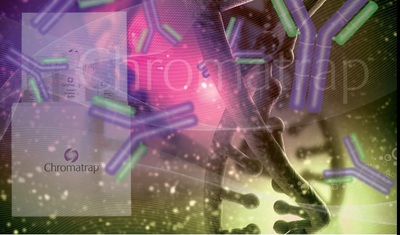
Contact Details:
EngNet - Engineering Network
11121 Carmel Commons Blvd.
Charlotte
NC
28226
United States of America
Tel: +01 704 5413311
Fax: +01 704 9430560
Send Enquiry | Company Information

Validated Antibodies for Mammalian Epigenetic Research
Company News Tuesday, September 27, 2016: EngNet - Engineering Network
Chromatrap, a business unit of Porvair Sciences, announces that seven further popular antibodies have been validated for use in chromatin immunoprecipitation (ChIP) assays by their UK-based research team.
The new crop of antibodies represents some of the most frequently-cited antibodies in mammalian epigenetic research including H3K4me1, H4K5ac, H4K12ac, H2Az, H3, H4, H3K9me1 and H3K9me2. In addition the new ChIP validated antibodies are now available from Chromatrap® with matching primers.
Purchasing Chromatrap® ChIP-validated antibodies with their matching high-quality primers, saves you time and gives you the confidence of using primers tested with the exact antibody and gene target with which you work. All of these new products are available from the Chromatrap® UK facility by 1- or 2- day cold chain delivery. For further information please visit www.chromatrap.com or request a data sheet / pricing fromsupport@chromatrap.com / +44-1978-666222.
Chromatrap® is a business unit of Porvair Sciences, a wholly owned subsidiary of Porvair plc. Launched worldwide in 2012 - Chromatrap® solid-state ChIP technology has been shown by a growing number of research groups worldwide to be more efficient than conventional bead-based methods.
This is because the solid phase porous polymer, functionalized with either protein A or G, provides a greater surface area for chromatin antibody binding with very low non-specific binding. In addition, it uses a spin column approach, offering significant speed, process and carry-over advantages over sepharose or magnetic beads. DNA pull down with Chromatrap® is up to 25 times more than conventional methods, whilst the signal to noise ratio for DNA enrichment is 2 to 3 times better, even with low chromatin samples between 50ng to 3000ng per immunoprecipitation.
